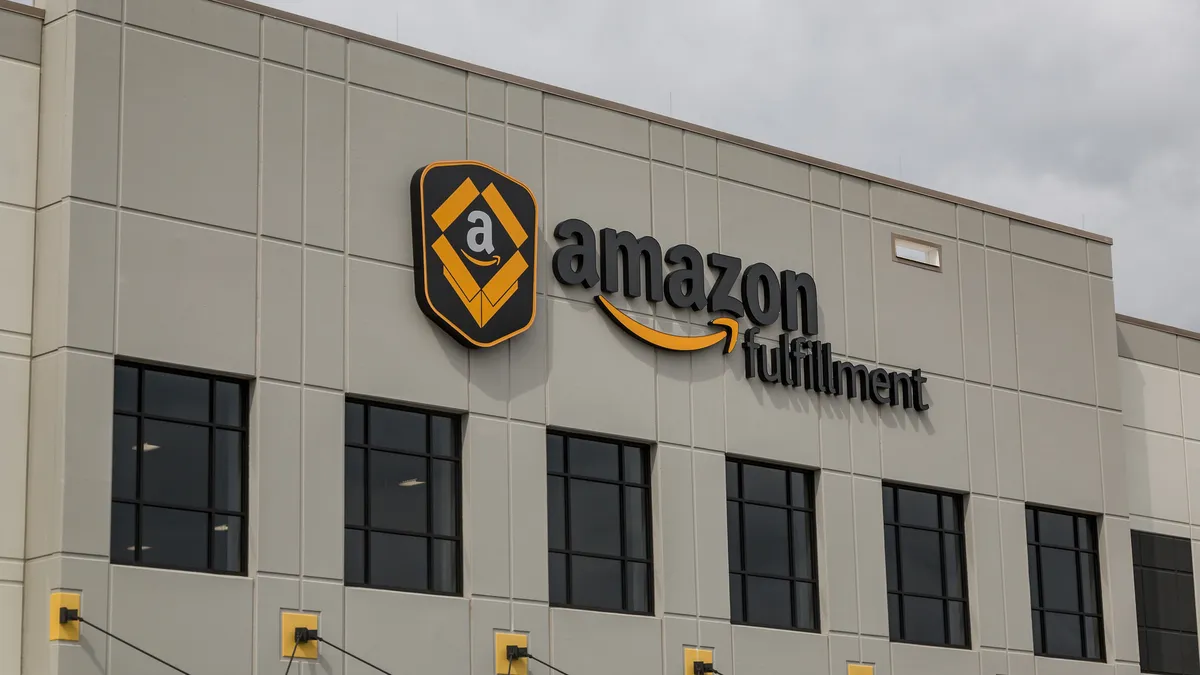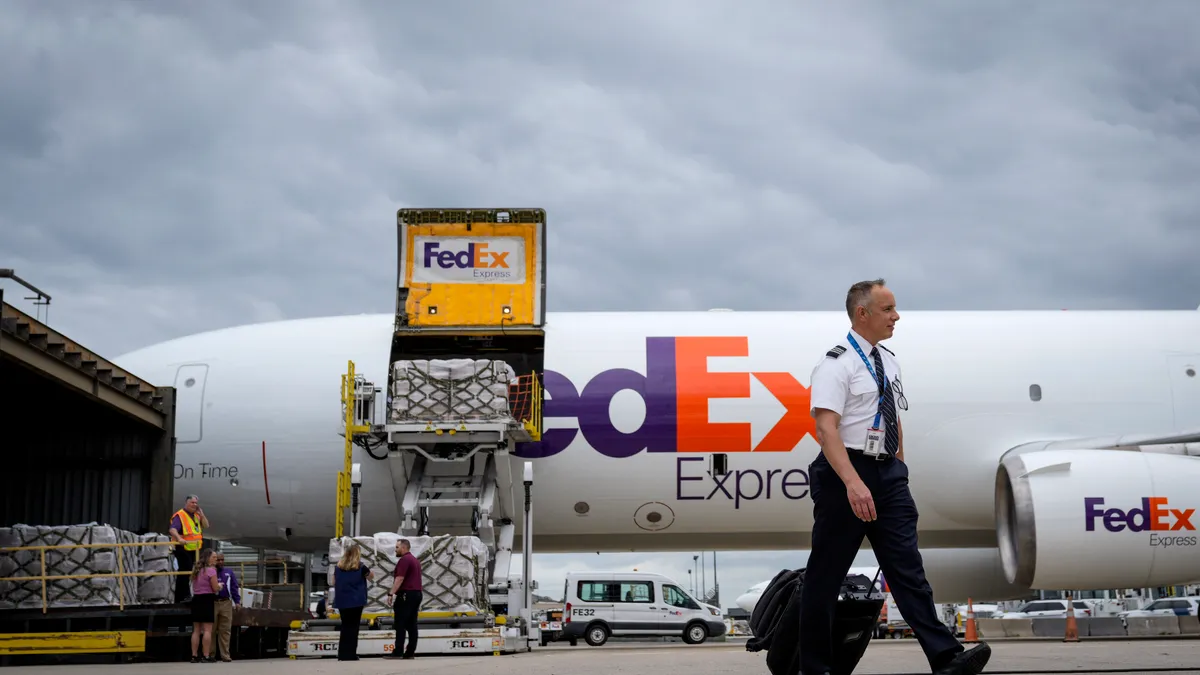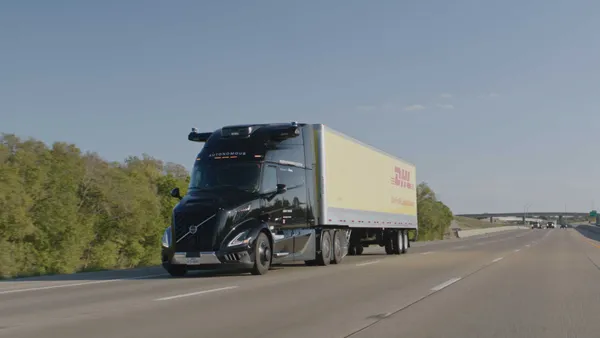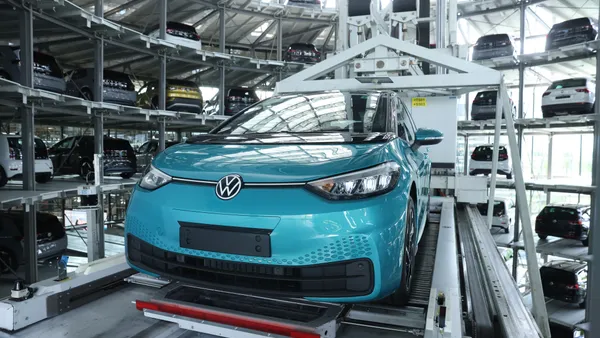Dive Brief:
- Emerging technologies, the rise of e-commerce and government regulations are top of mind right now for wholesale distributors, according to a recent report by Exact, Macola division. Exact surveyed 203 wholesale distributors responsible for IT decisions within their companies.
- The concerns are driving respondents to new strategies. The survey found up to 60% of warehouse and fulfillment operations are now outsourced, 80% of respondents have adjusted prices based on regulatory concerns, and 58% are using connected machinery.
- While emerging technologies were the top concern for most respondents, Amazon's role in the wholesale distribution chain was prominent. 92% of respondents said they considered the e-commerce giant a competitor, although 64% also consider Amazon as a "partner."
Dive Insight:
Despite its small sample size, the survey shows just how deeply Amazon is embedded into many distributors' supply chains, and the structural changes the business groups are making to better compete in the world of e-commerce.
Wholesale distributors are at the frontline of a changing economy. Direct-to-consumer sales threaten their business models, which previously relied on shipping large amounts of inventory to brick-and-mortar stores or manufacturers for resale or use. Yet, online sales channels by nature remove the middleman — evident in the hundreds of stores closing nationwide — forcing wholesale distributors to adapt accordingly.
This change is nothing new. "As distributors of all sizes and across all lines of trade, we face unrelenting, competitive pressure from all directions," Patrick Larmon, 2013 Chairman of the Board of the National Association of Wholesaler-Distributors said at the 2014 executive summit. "Be it the pressure to perform that comes with the ongoing consolidation of our vendors and customers, or the pressure from new, powerful and deep-pocketed online competitors moving into the traditional distribution space."
Three years later, these "online competitors" are fully in the traditional distribution space, as shown by the Exact report. Yet, rather than turn away from services like Amazon Fulfillment, distributors appear to be embracing — albeit perhaps hesitantly — the service in order to remain competitive. At the end of the day, the distributor must sell the suppliers' product, whether through another company's digital infrastructure or not.
Retaining accounts is more important to the business groups, despite concerns over competition. In 2013, Larmon added the key to a distributors' success was its talent, in sales just as much as in its logistics and IT divisions. He said online distributors could not compete with a driver's deep knowledge of each warehouse client.
Perhaps, but with 80% of buyers shifting towards web-friendly suppliers according to a recent UPS survey, and Amazon expanding its own logistics fleet and business services, change is on distributors' doorsteps. So much, the NAW has an ongoing blog series titled "Distributors in the Digital Era." The latest edition, its 24th, comments on what distributors can learn from Amazon's acquisitions.














